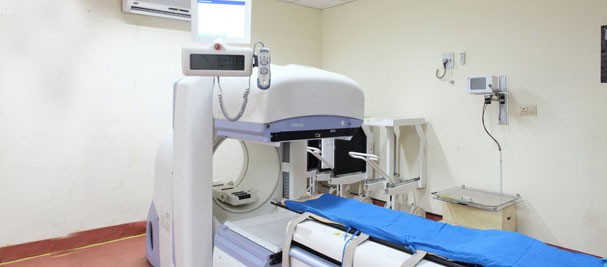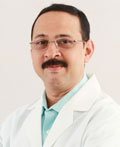
Our Team > Nuclear Medicine
Nuclear Medicine
Scope of services- The Nuclear Medicine Division of RCC provides both diagnostic and therapeutic services.
- The diagnostic services are primarily performed on a PET-CT scanner and two dual-head gamma camera, one with SPECT-CT system (GEInfinia II). This includes studies with FDG Scan for tumour imaging and Gallium-68 DOTATATE scan for neuroendocrine tumours, PSMA (Prostate-Specific Membrane Antigen) scan for prostate cancer, MDP bone scan, both small dose and high dose 131-I scan for thyroid, 99mTcO4 scan for thyroid, DTPA Renograms, DMSA for renal scan as well as DMSA (V) scan for medullary carcinoma thyroid, Sestamibi scan for tumour imaging,and parathyroid imaging. Hepatobiliary imaging, sialoscintigraphy, MUGA scan, a RBC-labelled blood pool imaging.
- In vitro immunoassay services include assay of hormones ( T3, T4, TSH, fT3, fT4, aTG, ATPO, PTH,
Testosterone, Prolactin), Tumor markers like (AFP, CEA, PSA, TG, b2Microglobulin, Calcitonin, CA125, CA 19.9)
- Therapeutic services include treatment of thyrotoxicosis and carcinoma thyroid with I-131, 177Lu-DOTATATE/PSMA therapy for metastatic neuroendocrine tumours and prostate cancer.
-

- Name: Dr. Sreekumar A, MD, Dip NB, DRM
- Designation:Additional Professor and Head
- Division:Nuclear Medicine
- Clinical Expertise:Thyroid Cancer, Thyrotoxicosis
- Out Patient Clinic:
- Contact:Email:Office Phone:+91 471 2522319Fax:+91 471 2447454
-